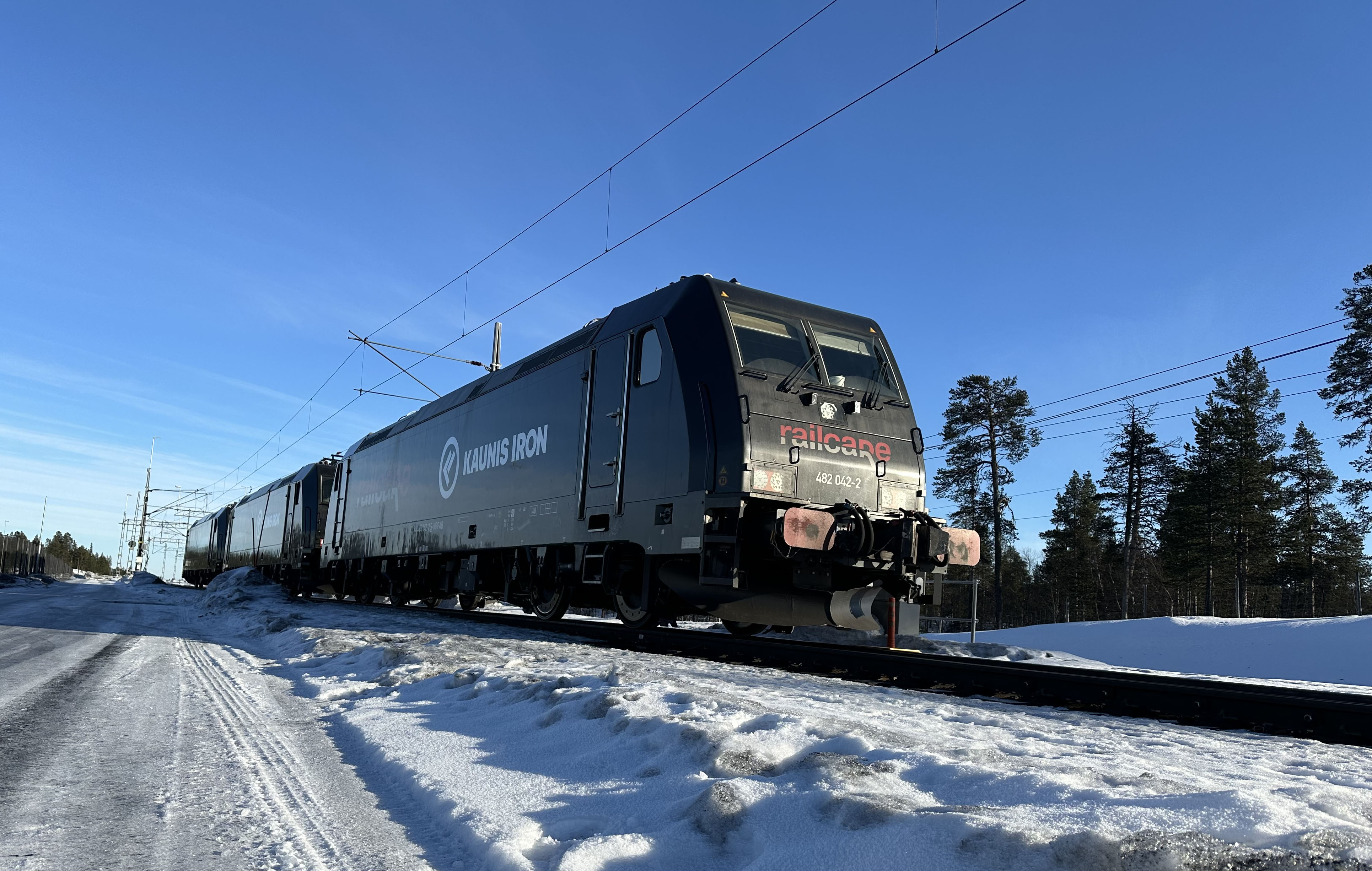It Is Unreasonable to Force Us to Finance a Railway Section We Do Not Use
13 February 2025, 14:35 CET

The Swedish government has tasked the Swedish Transport Administration (Trafikverket) with investigating the future development of a double-track railway between Luleå and Boden. As part of this effort, Trafikverket has commissioned a report to explore various financing models for the project. While investment in Malmbanan is a necessary step to upgrade our national transport infrastructure to meet the growing demands of heavy rail transport, the conclusions drawn in Trafikverket’s report are entirely unreasonable from our perspective.
Let’s be clear. We have no interest in co-financing a double-track railway on a section of Malmbanan that we do not even use, which is the case for the Luleå–Boden route. An increase in track fees related to this investment would result in a cost hike of tens of millions for Kaunis Iron—a completely unacceptable outcome.
The report suggests that those with the heaviest transports and no alternative but rail should bear the financial burden, meaning mining companies like us. This, in our view, is a form of hostage-taking. Our iron ore plays a strategically vital role in the EU's raw material supply, a fact that should be recognized and prioritized. This understanding should lead to decisions that improve our conditions for continued operations, not the opposite.
In December, track fees increased by 40 percent, and this new proposal would mean an additional 60 percent hike. Over the past 15 years, track fees have increased by over 300 percent—a remarkable cost surge.
Historically, iron ore track fees have not only financed Malmbanan but also contributed to large portions of the Swedish railway network. Meanwhile, various new actors are set to use the same railway—tourists, large quantities of salmon, and soon fossil-free steel. The volume of transported iron ore remains largely unchanged. Yet, it is still the iron ore industry that is expected to foot the bill, while these new users are not held accountable. Is this truly a fair arrangement? Would it not make more sense for co-financing to involve those who actually utilize the Luleå–Boden section—not us?
To be clear, Kaunis Iron is not opposed to co-financing on principle. Our collaboration with Trafikverket in the MaKS project, where we co-financed an upgrade of the road network we use in Tornedalen with SEK 127 million, is a textbook example of what we consider fair and logical. In that case, we contributed to strengthening infrastructure that directly benefits our own heavy transports.
In this instance, however, we can reach only one conclusion: the state must bear this cost. Sweden should support the ongoing industrial transformation in the north with precisely this type of investment in national transport infrastructure. Such an investment will ultimately be profitable for the state through increased tax revenues and an even stronger trade balance.
Historically, Sweden has upheld the principle of financing crucial national infrastructure to support societal development. Given the ongoing industrial investments of over SEK 1,100 billion in the north, including new climate-smart industries, it is only reasonable that the state funds significant infrastructure investments necessary to enable this growth.
Our conclusion is clear: imposing an additional fee for Malmbanan’s expansion on a section we do not even use would jeopardize the long-term future of mining operations in Tornedalen. This, in turn, could directly impact hundreds of jobs in Norrbotten, affecting families who have settled here and depend on a leading mining industry for future generations. Additionally, a potential shutdown would harm surrounding businesses and significantly reduce tax and fee revenues for the state.
Infrastructure and Housing Minister Andreas Carlson states in his mission statement: "The government's objective is for all of Sweden to function. The opportunity to lead a good life, run a business, and raise a family in a safe environment should exist regardless of location. Conditions for living, working, and thriving across the country should be strengthened. The national transport infrastructure should contribute to this. The government wants to facilitate commuting and freight transport to boost jobs and growth nationwide while strengthening Sweden's competitiveness."
We assume that Pajala and Tornedalen are included in the definition of "all of Sweden." We sincerely hope that the government recognizes the sheer unreasonableness of forcing us to pay for a state investment in a railway project that we do not even use.
Klas Dagertun, CEO, Kaunis Iron